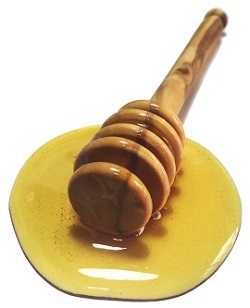
Raw Honey Expiration and Best Before Date
Many of our website visitors have queried why some honey jars have an expiration or best before date when it is a well-known fact that pure raw honey has an indefinite shelf life. These honey products, as concluded by them, must then be pasteurized, adulterated or fake. Is this statement true? It's not true.
What is Raw Honey?
The first term we have to clarify - raw honey. The understanding of "raw honey" seems to be rather fuzzy for a lot of people. We get many such questions from our visitors: "Which is better, raw honey or creamed honey?", "My pudding recipe calls for raw honey, can I use floral blend honey instead? " "Should I buy raw honey or Manuka honey?" Raw honey basically refers to honey that is totally unprocessed, unheated. There is no reference to any floral varietal of honey or the form of honey (creamed, liquid, comb). People who asked those questions apparently do not quite know this.
Heating or warming up doesn't make honey less pure, though the beneficial live enzymes are destroyed in the process of heating (and the extent of destruction depends on how much heat is applied.) And being raw doesn't rule out the possibility of adulteration. Raw honey can be diluted or adulterated with other substances such as starch or processed sugars, which can shorten the lifespan of the resultant liquid.
Does honey expire?
Whether raw or pasteurized, 100% pure honey should last indefinitely if stored properly - in air-tight containers, stowed away from heat.
So this then leaves us with the question - since pure, unadulterated honey does not spoil if stored properly, then why is there an expiration date?

Why Expiration Date?
Honey jars bought directly at the farmers' market or from your beekeeper normally do not have any expiration stamps. However, for food products sold in the supermarket, including honey, expiration or best before dates are a commercial requirement. Hence, even salt and vinegar come with an expiry date. Honey jars are stamped with "best before date" that suggests shelf life of 2 years, 3 years or even up to 5 years. Not many consumers realize that many honey varietals crystallize over time on the shelf and exhibit changes in color and appearance. Though honey crystallization is a natural and harmless process, most consumers do not perceive the darkening of honey and the formation of sugar crystals in honey positively. In this case a "best before date" on the jar does help in indicating "freshness" of the honey and address customer's expectations to a certain extent. So, the "best before date" in a way signals to the customers whether or not the honey jar has been sitting on the shelf for too long. Well, you wouldn't want to end up wondering if you have bought a honey jar that has been left on the shelf for years even if you know honey remains edible for indefinite years.
Longer Expiration Doesn't Mean Fresher
When comparing a jar of honey with expiry duration of 2 years and another jar with duration of 5 years, many consumers actually assume the longer the expiration date, the better the honey. When asked why, they told me the honey expiring in 5 years was expected to be fresher. But there is no reason why one should believe that the longer the expiration duration, the fresher the honey. If it is true that shorter expiry dates are better, then fresh meat that expires in three days would be deemed as less fresh than canned preserved meat that expires in 3 years. But that we know is not true at all. Unlike perishable meat and vegetables, 100% pure, undiluted, supersaturated honey can withstand the test of time and will stay good indefinitely!
End of "Raw Honey Expiration and Best Before Date". Back to "Honey Storage Tips"